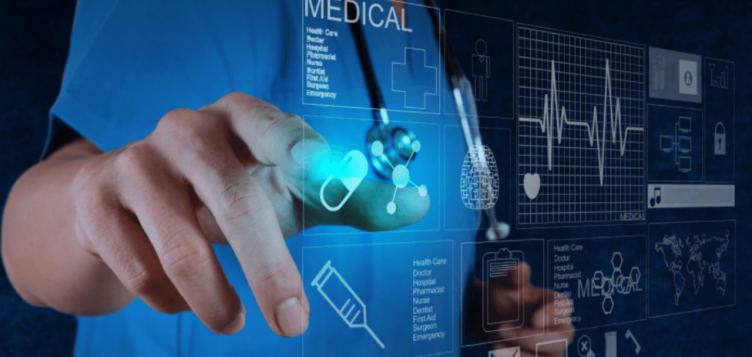Why Digitize The Healthcare?
Till about 20 years ago, there were only two major industries that had not been digitized, healthcare, and banking. Unfortunately, now only healthcare enjoys that, umm privilege? In fact, according to a recent survey, only about seven percent of the healthcare sector has been digitized when compared to 15% in the other sectors, despite 2020 flying past us, with unprecedented circumstances, that may have really benefited by mass digitization of healthcare.
Here is a quick look at why a digital transformation is the need of the hour for a positive impact on healthcare.
This year, telemedicine remained quite popular, especially among those who had minor ailments and needed the doctor’s opinion but were not serious enough to take a risk and go to corona infected hospitals. While advances in robotics and artificial intelligence have made many procedures, including the maintenance of health records, faster and easier.
Digital solutions for the healthcare sector need to be innovative so that a physician’s work is streamlined, systems are optimized, while human error and costs are lowered, leading to improving patient outcomes. Despite all the wonderful changes technology may bring for us in the healthcare sector, it is largely underdeveloped, as I said at the start.
This is surprising given the fact that the US healthcare market is huge, with national spending predicted to rise to $5.7 trillion by 2026. So if the market is thriving why does the sector need to undertake a digitalization or a more comprehensive one at that?
One of the foremost benefits of digitizing healthcare is how one can gather big data from the sector which can help lower medication errors by employing certain software that flags inconsistencies. It can help facilitate preventive care, where some patients who frequent emergency rooms are those that came returning due to complications. Keeping a track of these and other patients may help provide them care before they reach the state of emergency
The development of technology that enables virtually as well as mixed reality can greatly save time between consults, where the doctor and the patient do not even have to be in the same room or even the same country. This would especially be helpful in the case of specialist consultants that patients fly to in order to just get examined. Or also during emergencies where the doctor will not have to wait for the patient to be transported to them for the course of treatment to start, helping make life-saving decisions way ahead of time. Doctors can also practice difficult procedures without endangering any actual lives.
Virtual reality has also been helpful in helping people through chronic pain, anxiety, PTSD, and even strokes, as they can totally immerse a patient in various environments without threatening their wellbeing as in the case of prescription medication.
As time has gone on, people have become more invested in their health, which has led to an increase in wearable technology that monitors health indicators like pulse and blood pressure amongst others. Even certain mobile phones now come equipped with sensors that can, to an extent, accurately detect the pulse and count your footsteps. The good part about these wearable items is that they let the patient monitor symptoms and reach out to a doctor on the first sign of trouble, greatly reducing the risk to them, instead of waiting till the last moment. For example, a diabetic patient can now monitor their own sugar level at home, and call the doctor up on a slight fluctuation, instead of only finding out when they start to feel sick after a major disturbance in sugar levels.
There is then the artificial intelligence aspect of technology that can also be greatly applied to medicine, like the American hospital droid Moxi, which is designed to help restock supplies and fetch items for nurses. Chatbots for hospital websites or even setting them up as diagnostic tools are other ways that technology can be incorporated in the healthcare sector.
AI is the most helpful in providing precision medicine for people. The biggest example has to be the leaps and bounds made in oncology. Before the discovery of AI in this capacity, patients would receive a cookie-cutter treatment for cancer. This would end up in many side effects as well as not a very effective treatment but now, with pattern recognition enabled AI that is not the case. Each cancer treatment now can be tailor-made according to the patient’s genetic makeup, the intensity of the cancer itself, and the patient’s lifestyle.
It is true that some in the healthcare sector have already applied many of the tech solutions mentioned above but with the way covid-19 is shaping the world, and how fast technology is evolving, it is definitely time for more in the sector to apply technological solutions to further the field of medicine.
– Nida Khan

Comments are closed